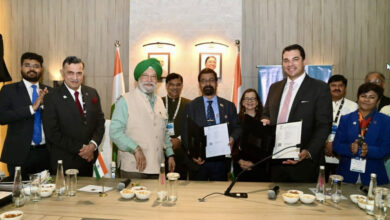Benefits of Pharmaceutical Manufacturing by a Third Party for Pharma Franchise Companies

While the situation in medicine is evolving, pharma corporations are unlikely to be able to compete, bringing third-party manufacturing as a conscious policy for improving production efficiency and growth without a deeper understanding of this problem.
The pharma franchise companies, especially the PCD-pharma companies, need outsourcing advantage from professional external partners, particularly when searching for the best PCD pharma company in India.
This cooperative model presents numerous benefits for organizations trying to ease processes and focus on core expertise. Let us dwell on the substantial advantages that come up in pharmaceutical production by the third parties.
Cost-Efficiency
- Economies of Scale: The third-party operators having their factories usually get more profits on a large scale; therefore, they purchase and process raw materials at a reduced cost.
Reduced Overheads: Businesses now don’t necessarily have to invest much money in infrastructure, technology, and workers’ training, so their operational costs can be dramatically reduced.
Focus on Core Competencies
- Strategic Focus: Changing the pharmaceutical production processes to other nations indicates that the whole industry and PCD Pharma Company in India can spin off and focus on its core competencies: Research and Development, Marketing and Regulatory Compliance.
- Accelerated Innovation: Outsourcing a function is a rebalancing or shift of resources, which signifies that the company targets to deliver fast products through the process of internal process excellence innovation and the avoidance of the external factors that come with outsourcing that may distract the company.
Flexibility and Scalability
- Adaptability to Market Demand: By arrangement with third-party vendors, great production volume demand is easily possible. Therefore, companies will produce only good enough for the market.
- Scalability: This business operation is the business development. This process is the third paradigm responsible for seamless scale-up without additional significant capital expenditure.
Quality Assurance
- Expertise and Compliance: These are vital characteristics that the third-party manufacturers who have been developing the expertise and maintaining strict quality standards and compliance to regulations usually meet.
- Dedicated Quality Control: They (these manufacturers) have a separate quality control section dedicated to manufacturing pharmaceuticals that meet, or are better than, the industry’s standards.
Speed to Market
- Rapid Production: Strategic partnership with manufacturing companies allows firms, notably PCD pharma, not to execute their primary obligation of satisfying the constrained market without another waiting list for manufacturers.
- Faster Regulatory Approvals: In the quest for successful partnerships, one of the primary tools at one’s disposal is finding manufacturing partners; in that way, the regulatory process becomes simple and the approval process speedy.
Risk Mitigation
- Reduced Operational Risks: In medical devices, the main challenges, which are often the manufacturing, logistics and compliance, are entirely removed with outsourcing manufacturing. As there are other players in the industry, they can choose the best of the bunch for the partnership.
- Contingency Planning: Provisions that entail contingency and support measures by other third parties like the manufacturers should be present for hindrances like natural calamities regardless of when they arise.
Global Reach and Market Expansion
- International Presence: A global strategic partnership with a manufacturer that has already gained a considerable brand presence outside will allow us to enter new markets in many regions without setting up factories in every region.
- Navigating Local Regulations: Since their local knowledge and skills will enable them to access various markets with different and complicated local laws easily, the local manufacturers can easily access other markets’ laws through them.
Conclusion
Licensing patent shares from leading companies form the pinnacle of pharma companies’ massive market expansion, specifically those that deal with out-licensing pharmaceuticals.
The advantages are gained using strategic outsourcing; they include long-term and long-lasting business spread benefits; they are immediate, cost-effective and tactical.
Moreover, the collaborative model simplifies procedures and acts as a harbinger of swift market access.
This is important for biotechnology pharma enterprises as it helps them quickly navigate the regulatory landscape, adapt to changing markets, and capitalize on emerging opportunities.
Confidence in pharmaceutical quality by experienced third-party manufacturers is mainstreaming the best PCD pharma company in India.
The determination of this organization to excel wherever possible promotes trustworthiness among health service providers and end users.
In addition, the third-party partners have been a robust risk management tool due to this model.
Given the evolution of the global pharmaceutical landscape, last-minute problems might occur, and having a knowledgeable advisor with prerecorded solutions would prevent interruptions in production and product delivery, protecting PCD pharma companies/interests.





